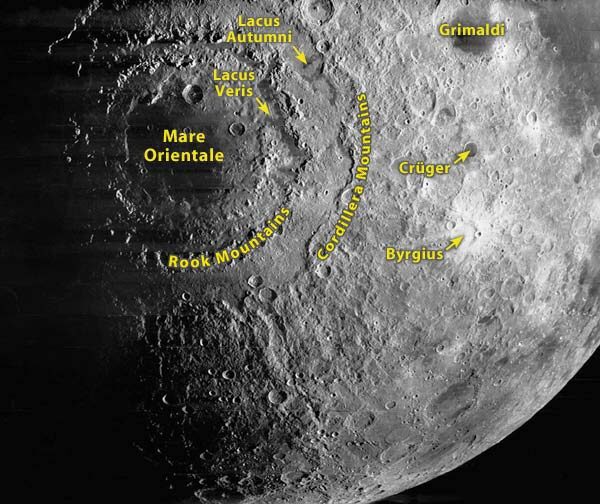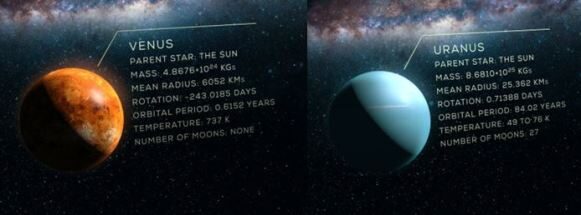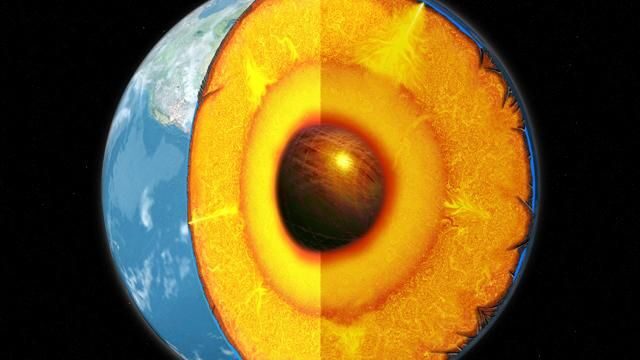What Planets are Named After Gods?
The planets in our solar system have been named after gods from various mythologies, creating a fascinating link between astronomy and ancient beliefs.
Key Takeaways
- The planets named after Roman gods include Jupiter, Mars, Mercury, Saturn, and Venus.
- Jupiter is named after the king of the Roman gods.
- Mars is named after the god of war.
- Mercury is named after the messenger of the gods.
- Saturn is named after the god of agriculture.
- Venus is named after the goddess of love and beauty.
- Uranus and Neptune are named after gods in Greek mythology.
- Uranus is the god of the sky, while Neptune is the god of freshwater and the sea.
- Pluto, previously classified as a planet, is named after the Roman god of the underworld.
Planets Named After Roman Gods
Jupiter, Mars, Mercury, Saturn, and Venus, the planets in our solar system, are all named after gods from Roman mythology. Each of these celestial bodies holds a special significance in the ancient Roman pantheon, reflecting the cultural values and beliefs of the civilization. Let’s take a closer look at these captivating planets and the gods they are named after.
Jupiter: The King of the Gods
Jupiter, the largest planet in our solar system, is named after the king of the Roman gods. In mythology, Jupiter, or Iuppiter, was the ruler of heaven and Earth, associated with thunder and lightning. This powerful deity symbolizes strength, authority, and justice. With its immense size and presence, the planet Jupiter embodies the grandeur and might of its namesake.
Mars: The God of War
Mars, the fourth planet from the Sun, derives its name from the Roman god of war. Known as Mars in ancient mythology, he was revered as the fearless and strategic god of conflict. The reddish hue of the planet, reminiscent of blood and battlefields, further reinforces this connection. Mars has long captivated the human imagination as a beacon of both courage and aggression.
Mercury: The Messenger of the Gods
Mercury, the closest planet to the Sun, is named after the swift-footed messenger of the gods. In Roman mythology, Mercury, or Mercurius, was known for his agility and eloquence. This planet’s proximity to the Sun and its rapid orbit symbolize the planet’s association with speed and communication. Mercury continues to intrigue astronomers and inspire thoughts of interstellar messages yet to be deciphered.
Saturn: The God of Agriculture
Saturn, the sixth planet from the Sun and adorned with its beautiful rings, takes its name from the Roman god of agriculture. Saturn, or Saturnus, was revered as the god who taught humanity the art of farming and was associated with abundance and prosperity. The captivating rings encircling the planet reflect Saturn’s connection to harvest and fertility, creating a celestial spectacle that continues to awe and inspire.
Venus: The Goddess of Love and Beauty
Venus, the second planet from the Sun and often referred to as the “evening star” or “morning star,” is named after the Roman goddess of love and beauty. Venus, or Venus, was synonymous with desire, romance, and feminine grace. As one of the brightest objects in the night sky, Venus illuminates our evenings and mornings, evoking a sense of enchantment and radiance.
| Planet | God/Goddess |
|---|---|
| Jupiter | King of the Gods |
| Mars | God of War |
| Mercury | Messenger of the Gods |
| Saturn | God of Agriculture |
| Venus | Goddess of Love and Beauty |
Planets Named After Greek Gods
In addition to the planets named after Roman gods, our solar system also features Uranus and Neptune, which are named after gods in Greek mythology. Uranus, named after the god of the sky, was discovered in 1781 by Sir William Herschel. It is the seventh planet from the Sun and is known for its distinctive blue-green color. Uranus has an axial tilt of 98 degrees, causing it to rotate on its side. It is also the only planet named after a Greek god that is not associated with the Roman counterpart.
Neptune, named after the god of freshwater and the sea, was discovered in 1846 following mathematical predictions by French astronomer Urbain Le Verrier. It is the eighth planet from the Sun and is known for its vivid blue color. Neptune is the farthest planet from the Sun and has a thick atmosphere composed of hydrogen, helium, and methane. It was the first planet to be discovered through mathematical calculations rather than direct observation.
The naming of Uranus and Neptune after Greek gods reflects the influence of Greek mythology on scientific discovery. Ancient civilizations often turned to the heavens for inspiration, naming celestial bodies after their gods and goddesses. The connection between astronomy and mythology allows us to appreciate the rich cultural history embedded in our solar system. It reminds us of the enduring impact of ancient beliefs and the vastness of human imagination.
| Planet | Greek God |
|---|---|
| Uranus | God of the sky |
| Neptune | God of freshwater and the sea |
Additional Planets and Gods
One additional planet in our solar system, Pluto, holds a fascinating connection to mythology with its name originating from the Roman god of the underworld. In Roman mythology, Pluto, also known as Dis Pater, ruled over the realm of the dead and was associated with wealth and riches. The discovery of this distant celestial body in 1930 by astronomer Clyde Tombaugh led to its classification as the ninth planet in our solar system.
Pluto’s name was given to honor its mysterious and distant nature, much like the god it was named after. The decision to name the planet Pluto was influenced by an 11-year-old girl named Venetia Burney, who suggested the name after the Roman god of the underworld. This choice resonated with scientists and the public alike, capturing the imagination and curiosity surrounding this newfound celestial body.
Despite its intriguing origins, Pluto’s status as a planet has been a subject of debate in recent years. In 2006, the International Astronomical Union redefined the criteria for what constitutes a planet, leading to Pluto being reclassified as a dwarf planet. Regardless of its official classification, Pluto’s connection to the Roman god of the underworld remains a captivating aspect of our solar system’s history and mythology.
| Planet | Named After |
|---|---|
| Jupiter | King of the Roman gods |
| Mars | God of war |
| Mercury | Messenger of the gods |
| Saturn | God of agriculture |
| Venus | Goddess of love and beauty |
| Uranus | Greek god of the sky |
| Neptune | Greek god of freshwater and the sea |
| Pluto | Roman god of the underworld |
Mythological Significance
The intertwining of astronomy and mythology in the naming of planets offers a glimpse into the cultural significance and beliefs of the ancient civilizations. The celestial bodies in our solar system have long fascinated humanity, leading to the creation of myths and legends to explain their existence and movements. By naming these planets after gods and goddesses, our ancestors sought to honor and pay homage to these powerful deities, attributing their characteristics and attributes to these celestial bodies.
In Roman mythology, many of the planets in our solar system are named after gods. Jupiter, the largest planet, is named after the king of the Roman gods, symbolizing its majestic presence in the sky. Mars, known as the red planet, is named after the god of war, reflecting its fiery appearance. Mercury, the closest planet to the sun, derives its name from the messenger of the gods, emphasizing its swift orbit around the sun. Saturn, with its prominent rings, is named after the god of agriculture, symbolizing abundance and fertility. Venus, the dazzling planet visible in the evening and morning sky, shares its name with the goddess of love and beauty, embodying its radiant allure.
In Greek mythology, Uranus and Neptune are named after gods who ruled over the heavens and the seas. Uranus, the first planet discovered beyond Saturn, is associated with the god of the sky. Neptune, the farthest known planet from the sun, takes its name from the god of freshwater and the sea, mirroring its deep, mysterious nature. These mythological connections reveal the ancient Greeks’ understanding of the celestial realms and their belief in divine forces governing the natural world.
Pluto, although no longer classified as a planet, was once considered the ninth planet in our solar system. Its name is derived from the Roman god of the underworld, representing its distant and cold nature. While its reclassification has sparked debate among scientists and astronomers, the mythological association with the realm of the dead remains a fascinating aspect of Pluto’s history.
| Planet | Mythological Connection |
|---|---|
| Jupiter | Named after the king of the Roman gods |
| Mars | Named after the god of war |
| Mercury | Named after the messenger of the gods |
| Saturn | Named after the god of agriculture |
| Venus | Named after the goddess of love and beauty |
| Uranus | Named after the god of the sky |
| Neptune | Named after the god of freshwater and the sea |
| Pluto | Named after the Roman god of the underworld |
The connection between astronomy and mythology gives us insight into how ancient civilizations perceived and understood the universe around them. It reflects their beliefs, values, and the importance they placed on celestial objects. The naming of planets after gods and goddesses is a testament to humanity’s enduring fascination with the cosmos and its enduring desire to explain the wonders of the universe through the lens of myth and legend.
Conclusion
The planets in our solar system named after gods showcase the enduring influence of mythology on astronomy, serving as a reminder of the rich tapestry of human beliefs and cultural heritage. From the ancient civilizations of Rome and Greece to our modern understanding of celestial bodies, the connection between gods and celestial objects has captivated the human imagination.
In Roman mythology, we find Jupiter, named after the powerful king of the gods, representing strength and authority. Mars, the god of war, lends its name to the fourth planet, while Mercury, the swift messenger of the gods, is associated with the closest planet to the Sun. Saturn, the god of agriculture and abundance, shares its name with the sixth planet, while Venus, the goddess of love and beauty, adorns the bright evening and morning skies.
Greek mythology also leaves its mark with Uranus, the god of the sky, and Neptune, the god of freshwater and the sea. These distant ice giants hold a mysterious allure, just like their mythological counterparts. Lastly, we have Pluto, once considered the ninth planet, named after the Roman god of the underworld. Its discovery and subsequent reclassification sparked debates but highlighted the connection between scientific exploration and the stories passed down through generations.
The intertwined relationship between astronomy and mythology brings depth and meaning to our understanding of the solar system. It reveals the creative ways ancient civilizations sought to understand and make sense of the world around them. By naming celestial bodies after gods, they honored and immortalized these mythological figures, bridging the gaps between science, spirituality, and culture.
FAQ
What planets in our solar system are named after gods?
The planets named after gods in Roman mythology are Jupiter, Mars, Mercury, Saturn, and Venus. Uranus and Neptune are named after gods in Greek mythology. Pluto, which was previously classified as a planet, is also named after a Roman god.
Which Roman gods are the planets named after?
Jupiter is named after the king of the Roman gods, Mars is named after the god of war, Mercury is named after the messenger of the gods, Saturn is named after the god of agriculture, and Venus is named after the goddess of love and beauty.
Which Greek gods are Uranus and Neptune named after?
Uranus is named after the god of the sky, and Neptune is named after the god of freshwater and the sea in Greek mythology.
Why is Pluto named after a Roman god?
Pluto, which was previously considered a planet, is named after the Roman god of the underworld.
What is the significance of the connection between astronomy and mythology?
The naming of planets after gods reflects the cultural values and beliefs of ancient civilizations and highlights the celestial connections between astronomy and mythology.





